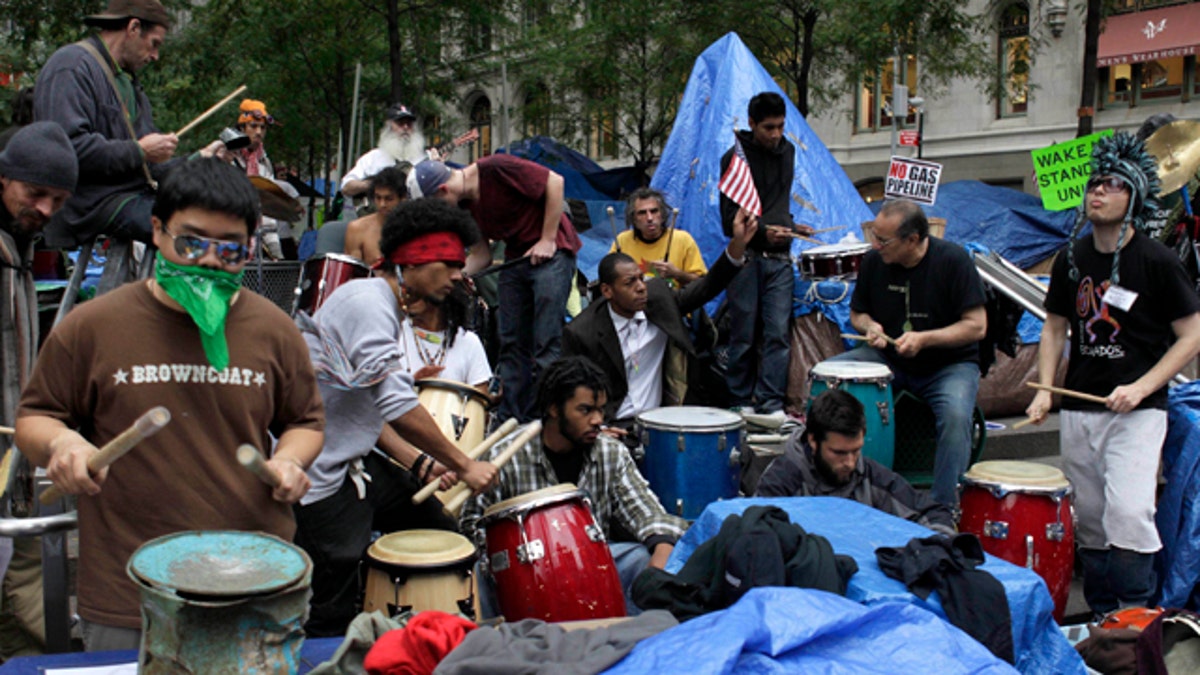
Oct. 26, 2011: Occupy Wall Street protesters play drums and other percussion instruments at Zuccotti Park in New York. (AP)
NEW YORK – Once a rag-tag group that relied on donated pizzas for sustenance, the protesters camped out in a Lower Manhattan park are grappling with a new problem: how to manage and spend the nearly $500,000 they've raised in five weeks.
Donors have showered the Occupy Wall Street protesters with more cash than many expected, and that has prompted a flurry of requests for spending. It has also spurred members of a movement that has thus far prided itself on its decentralized structure to consider steps that would require the formation of a real organization, with officers and a board of directors.
Members of the group's finance committee are meeting with lawyers and accountants to get a handle on its spending and consider next steps, like whether Occupy Wall Street should incorporate and apply for 501(c)(3) tax-exempt status. Such a move would require doing something that's so far been anathema to the protesters: naming leaders.
At the moment, Occupy Wall Street protesters say they don't have leaders. The only way big decisions can be made and money can be spent is if the General Assembly—a daily meeting at which everyone who shows up has equal standing—reaches a consensus.
Where the group's money goes isn't entirely up to the General Assembly, either. As far as the Internal Revenue Service is concerned, Occupy Wall Street does not exist.
A few weeks ago, the Alliance for Global Justice, a Washington-based nonprofit, agreed to sponsor Occupy Wall Street and lend it its tax-exempt status, so donors could write off contributions. That means the Alliance for Global Justice's board has final say on spending, though it says it's not involved in decisions and will only step in if the protesters want to spend money on something that might violate their tax-exempt status.
Once donations started pouring in, staffers met with members of Occupy Wall Street's finance committee and told them they needed to start keeping receipts and accounting for spending. They now work with a lawyer and an accountant to track finances and are attempting to release a full cash-flow statement online.
"They're dealing with issues that they've never dealt with before, but they are dealing with them seriously and responsibly," said Chuck Kaufman, a co-coordinator of the Alliance for Global Justice.
Click here for more on this story from The Wall Street Journal.





















